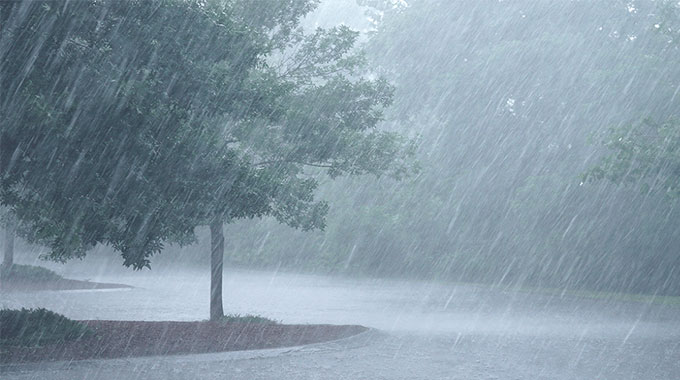Avoid being caught in the rains

Andile Tshuma
THE long-awaited rains are finally upon us but they are coming at a time when farmers in Matabeleland North and South provinces have lost an estimated 10 000 cattle to drought. Teachers had resorted to buying water in districts such as Gwanda, Beitbridge, Lupane and Binga as most water sources had dried up.
We celebrate the opening up of the heavens which have rekindled hope for a good cropping season.
Unfortunately the rainy season does come with a downside. Already there are reports of people being struck by lightning here in Bulawayo and in other parts of the country. We all need to stay safe during storms, life is precious.
My heart goes to the victims of Cyclone Idai who are yet to be relocated to their homes and the Tsholotsho flood victims who are also awaiting the completion of their new houses.
More than 700 people from 170 households in Chimanimani, whose homes were destroyed by Cyclone Idai in March, are still living in tents as the rainy season approaches.
Government has identified three farms for the relocation of the victims and these are Greenmount, the Flats and Nedziwa.
Seventy out of 350 families are yet to be relocated in Tsholotsho while the rest have since moved in to new homes.
Statistics from the Department of Civil Protection show that there are about 30 000 people from Cyclone Idai-hit areas, who are staying in tents and they risk being washed away if there is flooding during the coming rainy season.
The rainy season can also take a toll on health, particularly in children as it brings humidity, mosquitoes and seasonal diseases.
The common cold occurs frequently during this time. Influenza manifests as running nose, blocked nose or sneezing, fever or headache. It can be one or more of these symptoms. It is due to a viral infection, which spreads as a droplet infection. Objects touched by many people such as phones, door handles and remote controls, also become source of infection due to being contaminated. However, medical experts say it is a self-subsiding condition and does not need treatment as such.
Heavy rains with possible flooding can make commuting more difficult. If you have the chance to avoid hours when congestion is at its peak, do so. Avoid the hassle and the possibility of getting stuck in a downpour, leave earlier in the morning, especially if you are using public transport. Hopefully ZUPCO will fast sort out the issue of shelters at its pick- up and drop-off points around the city as people have been braving the scorching heat waiting for cheaper rides home. Wet weather is a totally different story.
Those prone to allergy can catch colds due to change in climate and vegetation. Attacks of asthma can be precipitated and aggravated in this weather. Skin diseases such as eczema can also be aggravated, particularly in babies.
Wet weather followed by warm sunny days provides the perfect breeding ground for mosquitoes. People in malaria-prone areas such as Binga district should therefore be on the lookout and get rid of stagnant water around them. Besides the malaria factor, mosquitoes are just a nuisance during this season, you can hardly sleep.
As rains wash flowing sewage from burst manholes and dirt into water bodies, water reservoirs become contaminated. Use of such untreated water could cause water-borne diseases such as diarrhoea, typhoid and cholera. It is therefore important to maintain the highest levels of hygiene during this time.
Diarrhoea, typhoid and cholera are all food and water-borne diseases. These can be prevented by drinking water only from safe sources. Or if unsure, boil water for five minutes or use chlorine, water guard or a few drops of bleach to treat the water. Cook food well and always have it covered to prevent contamination and always wash hands before preparing or handling food and after using the toilet.
If waste is not managed properly during the rainy season, it may result in devastating effects which include water pollution which subsequently leads to water-borne diseases such as cholera, typhoid and dysentery. Mismanagement of municipal waste can result in the blockage of storm drains which in turn cause flash floods especially in urban areas.
During this time of the year, the market will be flooded with various types of foodstuffs such as amazhanje, cooked or roasted green mealies and mangoes, among others. These foodstuffs have a great potential of littering the environment if not handled with care. Extra effort needs to be taken to ensure that the environment remains clean.
The rainy season coincides with the festive season and during this period extra waste is generated as a result of the procurements that are related to the festive season.
For those with children it is best to bath babies during the hottest time of the day and ensure that they eat warm meals, particularly if the wet weather is accompanied by chills. Children love to play in the rain, discourage them from the practice and try to keep them indoors when it rains.
The rainfall season is a season of productivity and multiplication, may it bring fruitfulness to your endeavours. — @andile_tshuma











Comments